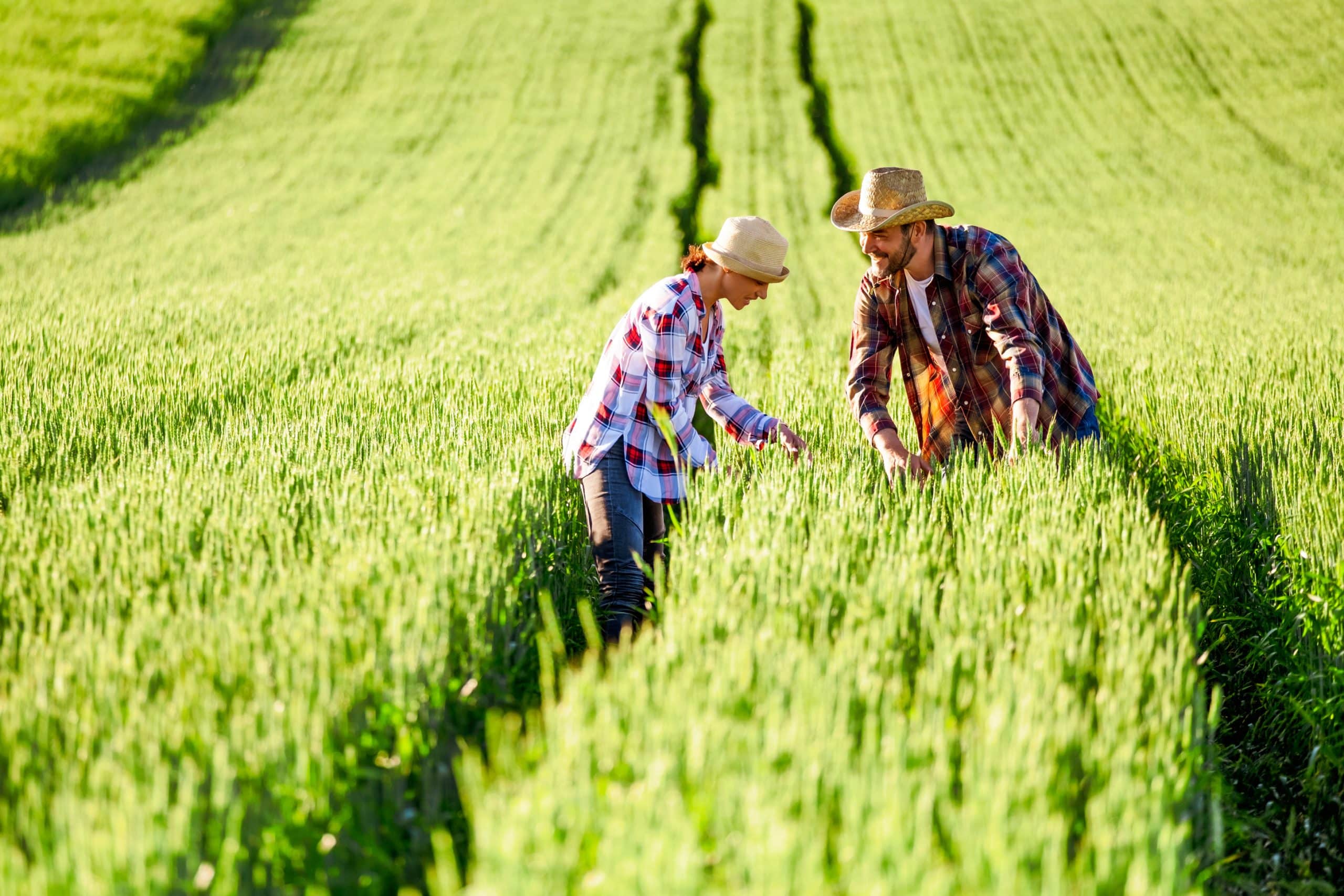How Are British Farmers Adapting to Climate Change with New Crop Varieties?

As the arena of climate change continues to loom large over the world, British farmers are turning to innovative strategies to ensure their survival. Faced with shifting weather patterns, unpredictable rainfall, and increasing temperatures, these farmers are adapting by exploring new crop varieties. The purpose of this article is to delve into how these adaptations are taking place, backed by scholarly research found on Google Scholar and Crossref, and what it means for the future of agriculture in Britain.
The Impact of Climate Change on British Agriculture
Climate change is a reality that affects all aspects of life, and agriculture is no exception. Changes in weather patterns and the growing unpredictability of rainfall have a profound impact on farmers’ activities. In the UK, the agricultural sector has been particularly hard hit.
En parallèle : Oktoberfest packages explained: what to expect in 2024?
The effects are not just limited to higher temperatures and erratic rainfall. Climate change also increases the risk of extreme weather events such as droughts, floods, and storms, which can be devastating for farmers. Moreover, changes in climate also affect the distribution of pests and diseases, posing new challenges to crop production.
The need for adaptation is clear. Yet, the question remains: how are farmers navigating this new reality? The answer lies in the use of new, more resilient crops, and innovative farming practices.
A découvrir également : What Are the Prospects for Lab-Grown Meat in the UK’s Culinary Scene?
Adapting Through New Crop Varieties
British farmers are increasingly turning to new crop varieties as a key strategy in their adaptation to climate change. This is not just about growing different types of crops; it’s about selecting varieties that are better suited to changing climatic conditions.
New crop varieties can be more resistant to pests and diseases, more tolerant of drought, or better adapted to higher temperatures. For example, the development and use of heat-tolerant wheat varieties could help maintain crop yields even in hotter conditions.
Farmers are also considering crops that require less water for irrigation, reducing their dependency on reliable rainfall. This not only helps them manage the risk of drought but also ensures the sustainable use of water resources.
These new varieties are often developed through selective breeding or genetic modification. Researchers and scientists, whose work can be found on platforms such as Google Scholar and Crossref, are instrumental in this process.
The Role of Scholarly Research
Adapting to climate change in agriculture is a complex process that requires a deep understanding of the impacts and how different crops respond to changing conditions. This is where scholarly research plays a vital role.
Scholarly research from sources like Google Scholar and Crossref can provide farmers with the latest science-based information about climate change and its impact on agriculture. This includes studies on the vulnerability of different crops to climate change, research on new crop varieties and farming techniques, and evaluations of adaptation strategies.
Access to this research can support farmers in making informed decisions about what crops to grow and how to manage them in a changing climate. It can also help them understand the potential risks and benefits of adopting new crop varieties.
Government Support and Policy Implications
While farmers are taking the initiative in adapting to climate change, they are not alone in this fight. Governments, both at the national and European level, are implementing policies and providing support to help farmers make these necessary changes.
In Britain, for instance, the government has introduced measures to encourage the use of water-efficient crops and irrigation techniques. Financial support is also available to farmers who wish to invest in infrastructure improvements or switch to new crop varieties.
At the European level, climate change adaptation in agriculture is a key priority. The European Union’s Common Agricultural Policy, for example, includes measures to support farmers in dealing with climate change.
Adapting for the Future
While the challenges posed by climate change are significant, British farmers are showing remarkable resilience in the face of adversity. By adopting new crop varieties and farming practices, they are not only ensuring their survival but also contributing to the fight against climate change.
The adaptation strategies being implemented today will shape the future of British agriculture. The hope is that these efforts will lead to a more sustainable and resilient food production system, capable of weathering the storms of climate change.
In this fight, every actor has a role to play – from the farmer in the field to the policy-maker in the government office, and from the scientist in the lab to the consumer at the supermarket. And as we face this global challenge together, it is clear that adaptation is not just a necessity, but an opportunity to build a better future.
Technological Contributions to Adaptation Measures
The fast-paced world of technology has been instrumental in aiding British farmers’ adaptation strategies against climate change. Advanced technological tools now allow farmers to monitor weather patterns, track water usage, and even predict pest movements, all in real time. This ability to anticipate and react swiftly to changing environmental conditions is crucial in the fight against climate change.
A significant technological development is in the field of satellite imagery, which provides farmers with vital information about their lands. Through data derived from remote sensing, farmers can chart the moisture levels of their soils, evaluate the health of their crops, and plan their irrigation schedules more effectively. This results in optimized water usage and increased resistance against droughts, a prevalent extreme weather condition associated with climate change.
Another key technology in adaptation measures is genetic engineering. Using the resources available on scholarly platforms like Google Scholar and Crossref, scientists can develop new crop varieties that are more resilient to the changing climate. This includes crops that can withstand higher temperatures, require less water, or are resistant to pests and diseases.
Technological advancements also extend to mobile applications that offer real-time weather updates, crop management advice, and market information. These apps arm farmers with knowledge and tools to take proactive adaptation actions, enhancing their capacity to cope with climate change.
The Long-Term Outlook: Food Security and Agricultural Adaptation
The long term response to climate change in the world of agriculture goes beyond ensuring a successful growing season for British farmers. It also involves safeguarding global food security, a fundamental human right.
Climate change poses a genuine threat to food security by placing stress on agricultural production. The increasing unpredictability of weather patterns and the associated increase in extreme weather events puts food availability at risk. However, the adoption of new, climate-resilient crop varieties and innovative farming practices can help to mitigate these risks.
The work being done by British farmers, supported by scholarly research from platforms like Google Scholar and Crossref, is not only essential for their livelihoods, but also crucial for maintaining food supplies. With the implementation of effective adaptation measures, farmers can continue to produce food even under shifting climatic conditions.
This is where agricultural adaptation becomes crucial. By leveraging technology, embracing innovative practices, and harnessing the power of scientific research, farmers are working to ensure a stable food supply – not just for Britain, but for the world.
Conclusion
The impact of climate change on British agriculture is undeniable. Yet, amid these challenges, farmers are demonstrating an admirable level of resilience and adaptability. With the aid of new crop varieties, advanced technology, and robust scientific research, they are developing effective strategies to cope with a changing climate.
From leveraging resources on Google Scholar and Crossref to adopting innovative agricultural practices, these adaptation actions are crucial in maintaining agricultural production and securing food supplies for the future.
The fight against climate change is a shared responsibility. Everyone, from policy makers to consumers, has a part to play in supporting these adaptation strategies. As we collectively navigate the effects of climate change, we must remember that adaptation is not just a necessity, but an opportunity to build a more resilient and sustainable future.
